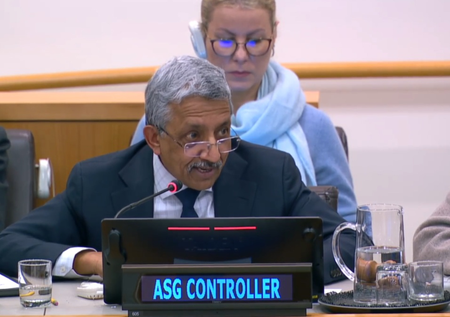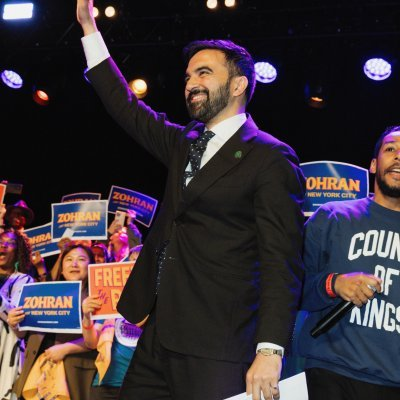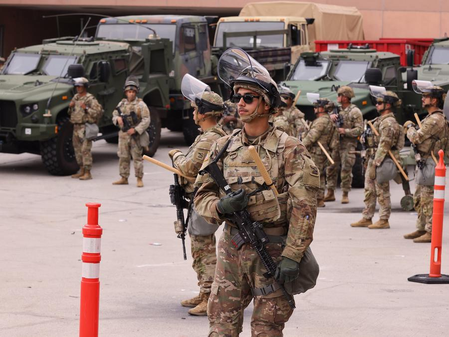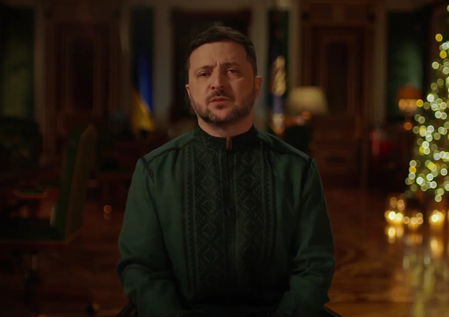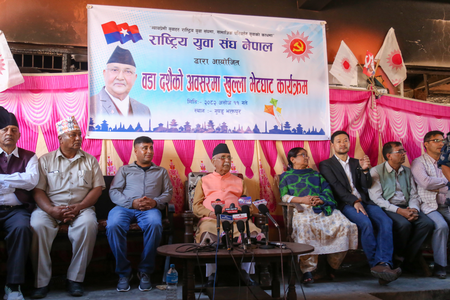
Kathmandu, Oct 13 (IANS) Nepal faces a growing risk of confrontation following the Gen-Z leaders’ campaign demanding the arrest of former Prime Minister K P Sharma Oli and Home Minister Ramesh Lekhak for their alleged roles in the killing of 19 protesters during the violent protests that rocked the country early September.
In response, the Oli-led Communist Party of Nepal (Unified Marxist–Leninist), or CPN (UML), has launched a counter-move demanding the prosecution of Kathmandu Metropolitan City Mayor Balen Shah — believed to be a key actor behind the formation of the current Sushila Karki-led government — and Gen-Z leader Sudan Jha.
These moves and countermoves from both sides could invite confrontation and cloud prospects for holding parliamentary elections scheduled for March 5 next year, several key stakeholders have said.
Last week, some Gen-Z leaders who spearheaded the protests that brought down the Oli-led government launched “Arrest KP Oli” and “Arrest Ramesh Lekhak” campaigns on social media. Subsequently, families of some people killed during last month’s protests filed complaints against Oli and Lekhak, accusing them of crimes against humanity and offences against the State.
In response, the UML’s student wing — the All Nepal National Free Students Union (ANNFSU) — filed a separate complaint against Mayor Shah and Gen-Z leader Gurung, accusing them of involvement in the September 9 destruction and sedition.
Although police forwarded the complaints against Oli and Lekhak to the High-Level Judicial Inquiry Commission formed to investigate the incidents of September 8 and 9, the commission later clarified that criminal investigation does not fall under its mandate and returned the complaints to the police.
“We received the complaints against Oli and Lekhak back from the commission, and we are consulting on the legal steps to be taken,” Superintendent of Police Pawan Bhattarai of the Kathmandu District Police Range told IANS. “Likewise, we are also holding legal consultations on the complaints filed against Mayor Shah and Gurung.”
Prime Minister Karki is facing growing pressure from the Gen-Z groups to arrest Oli and Lekhak. However, she risks alienating political parties if she yields to Gen-Z pressure ahead of elections.
Oli appeared defiant during a fiery speech at a party event organised by the UML in Bhaktapur, Kathmandu Valley, on October 9. “Do I fear Sushila Karki and run away? What do they think of me?” he said, recalling that he had endured many hardships in the past under oppressive governments.
He also criticised Home Minister Om Prakash Aryal, saying he is “an unknown figure” who has “a lot to learn about running the state”, and warned him not to act with impulsiveness.
The UML has accused the current government of resorting to vengeance against political parties and their leaders and has demanded the reinstatement of the House of Representatives, calling its dissolution unconstitutional.
As demanded by the Gen-Z protesters, Prime Minister Karki recommended the dissolution of the Lower House soon after assuming office, and President Ram Chandra Paudel dissolved parliament at midnight on September 12.
UML Deputy General Secretary Pradeep Gyawali told journalists after the party’s Secretariat meeting on Sunday that the party had decided to demand reinstatement of the dissolved House of Representatives.
However, the party has not ruled out participating in the scheduled elections but insists that an environment allowing political parties to operate freely must first be created. “If there is a genuine basis for elections, participation can be considered. First, the government should create a credible environment for polls,” Gyawali said.
Although the UML emphasised the restoration of the Lower House, many party leaders argued during the Secretariat meeting that the party should participate in elections, and some even demanded Oli’s resignation as party chair.
“During the meeting, many leaders were in favour of participating in the elections,” UML Deputy General Secretary Prithvi Subba Gurung, who is also a former Minister for Communication and Information Technology, told IANS. “It would be unacceptable to us if police arrest Oli without a proper investigation. Doing so would jeopardize the scheduled elections.”
He accused the government of focusing more on revenge than on holding elections.
Leaders of other parties — including the Nepali Congress and the CPN (Maoist Centre) — have said they are ready to participate in the elections and urged the government to create a conducive environment.
Even though the current government was formed with the primary mandate of holding elections, Prime Minister Karki has yet to take measures to build trust with traditional political parties. Instead, she has authorised the ceremonial President to initiate consultations.
On Friday, President Paudel met leaders of various political parties and urged them to participate in the elections “to protect the country, constitution, and democracy”. Some leaders at the meeting questioned why the government had failed to consult political parties directly.
A former senior police officer said that although the government was formed with the backing of Gen-Z protesters, it cannot act solely according to Gen-Z demands without following the law. Former Deputy Inspector General of Police Hemanta Malla told IANS that arresting political leaders or police personnel allegedly involved in shootings during the Gen-Z protests, without investigation by the inquiry commission, would only fuel confrontation.
“Police cannot function under a chain of command if those allegedly involved in the shooting are arrested before investigation by the inquiry commission into what led to the firing,” Malla said.
He added that the destruction of police posts, and the looting of police guns and uniforms from various stations, had demoralized the police. Boosting police morale ahead of elections is vital to ensure peaceful polls.
According to police, more than 1,200 rifles and pistols and nearly 100,000 rounds of ammunition were looted during the protests. Likewise, nearly 15,000 prisoners escaped from jails, and some have reportedly re-engaged in criminal activities. Most weapons have not yet been recovered, and thousands of escaped convicts remain at large.
“The government is not focused on boosting the morale of police and civil servants but on taking revenge against our chairman Oli and others,” UML leader Gurung alleged.
Stakeholders warned that the weapons and police uniforms looted during the protests could be used to undermine law and order. They also noted that the destruction of police posts in several districts would hamper security operations.
“A demoralised police force cannot handle threats to law and order unless the government takes credible measures, including providing necessary infrastructure and equipment,” Malla said.
–IANS
scor/as

